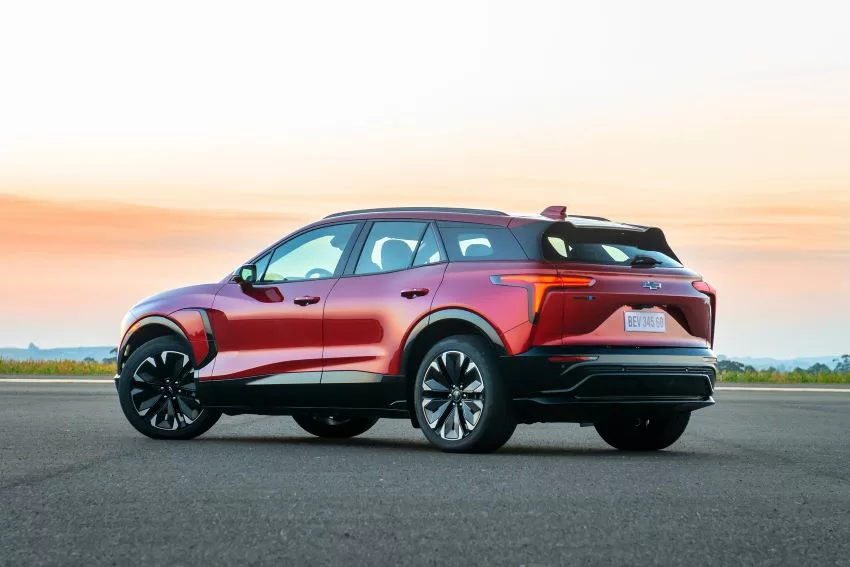In 2024, electric vehicles (EVs) are poised for a groundbreaking transformation, thanks to the emergence of solid-state batteries. This cutting-edge technology is set to redefine the EV landscape, promising longer ranges, faster charging times, and enhanced safety. According to Bloomberg Green, the global electric vehicle market is projected to grow by 25% this year, largely driven by advancements in battery technology. This article will delve into how solid-state batteries are revolutionizing EV range, what makes them superior to traditional lithium-ion batteries, and what this means for the future of clean energy and sustainable living.
Understanding Solid-State Batteries: The Basics
What Are Solid-State Batteries?
Solid-state batteries, unlike their lithium-ion counterparts, use a solid electrolyte instead of a liquid one. This fundamental difference offers numerous advantages, including higher energy density, which directly translates to increased driving range for EVs. According to TechCrunch, solid-state batteries can potentially offer 2.5 times more energy density than traditional batteries.
Advantages Over Lithium-Ion Batteries
- Longer Range: Solid-state technology enables EVs to travel significantly further on a single charge. For instance, recent prototypes have demonstrated ranges exceeding 500 miles, a substantial leap from the current average of 300 miles.
-
Faster Charging: These batteries can be charged to 80% capacity in just 15 minutes, as reported by InsideEVs. This is a game-changer for EV owners, reducing downtime and increasing convenience.
-
Safety Improvements: The solid electrolyte minimizes the risk of battery fires, a critical concern with lithium-ion batteries. This safety enhancement is crucial for consumer confidence and widespread adoption.
Key Players and Innovations in 2024
Leading Manufacturers Embracing Solid-State Technology
Several automakers are investing heavily in solid-state battery technology to enhance their EV offerings:
- Toyota: Set to launch its first solid-state battery-powered vehicle by the end of 2024, Toyota is at the forefront of this revolution. Their commitment to this technology is evident in their $13.5 billion investment in battery development over the next decade.
-
Volkswagen: In collaboration with QuantumScape, Volkswagen plans to integrate solid-state batteries into its EV lineup by 2025. This partnership aims to cut charging times and improve range significantly.
-
Nissan: With a target to release solid-state-powered EVs by 2028, Nissan is actively developing prototypes that promise enhanced efficiency and sustainability.
Breakthroughs and Challenges
While the potential of solid-state batteries is immense, there are challenges to overcome:
- Manufacturing Costs: Currently, solid-state batteries are expensive to produce, but industry experts believe economies of scale will reduce costs within the next few years.
-
Scalability: Scaling production to meet global demand is a significant hurdle. However, companies like Battery University are optimistic about advancements in manufacturing processes.
Practical Tips for EV Owners and Enthusiasts
How to Charge Solid-State Batteries
Charging solid-state batteries is straightforward, but it’s essential to use compatible charging stations that support faster charging speeds. As infrastructure develops, expect more charging stations to accommodate this technology, reducing range anxiety and making long-distance travel in EVs more feasible.
Where to Buy EVs with Solid-State Batteries
As of 2024, few models are available with solid-state technology, but this is rapidly changing. Keep an eye on announcements from major manufacturers like Toyota and Volkswagen. Early adopters should look for pre-orders and launches in Q4 2024.
What to Compare When Buying
When considering an EV with solid-state batteries, evaluate:
- Range: Look for models offering the longest range to suit your driving needs.
- Charging Time: Opt for vehicles with the fastest charging capabilities.
- Price: Consider the initial cost versus potential savings on fuel and maintenance.
The Future of Clean Energy and EVs
Key Takeaways
Solid-state batteries are set to revolutionize the EV industry by offering longer ranges, faster charging times, and greater safety. This technology not only enhances the appeal of electric vehicles but also supports broader clean energy goals by reducing reliance on fossil fuels.
Call to Action
Are you ready to embrace the future of electric mobility? Stay informed about the latest developments in solid-state technology and consider making your next vehicle an EV with this revolutionary battery.
A Look Ahead
As we move toward a more sustainable future, solid-state batteries will play a pivotal role in achieving global clean energy targets. The advancements in 2024 are just the beginning, paving the way for even more innovative technologies that will continue to transform how we think about transportation and energy consumption.
In conclusion, the revolution is here, and solid-state batteries are leading the charge. Whether you’re an EV enthusiast or a potential buyer, staying informed and prepared will ensure you’re part of this exciting journey toward a cleaner, greener future.

